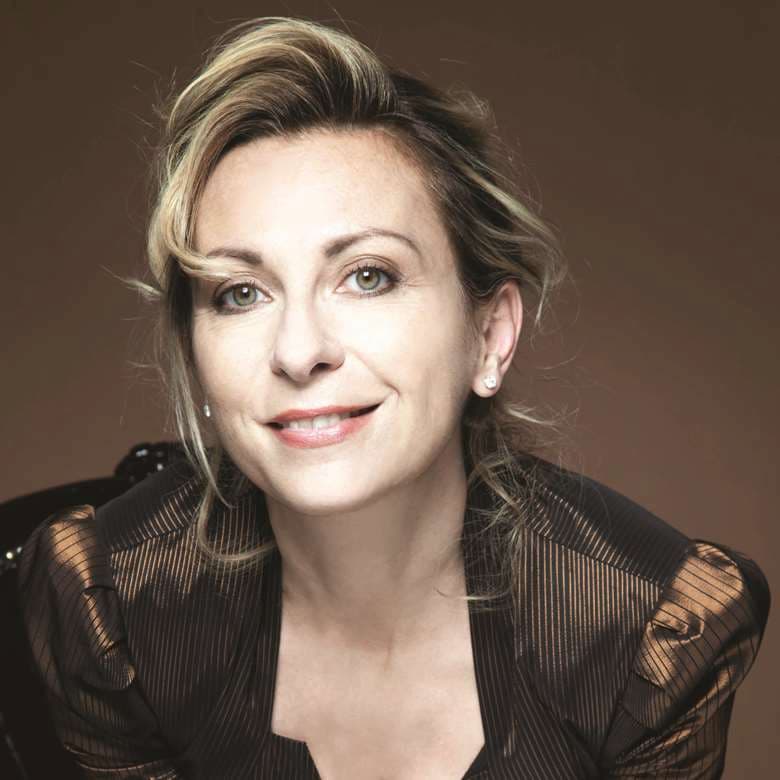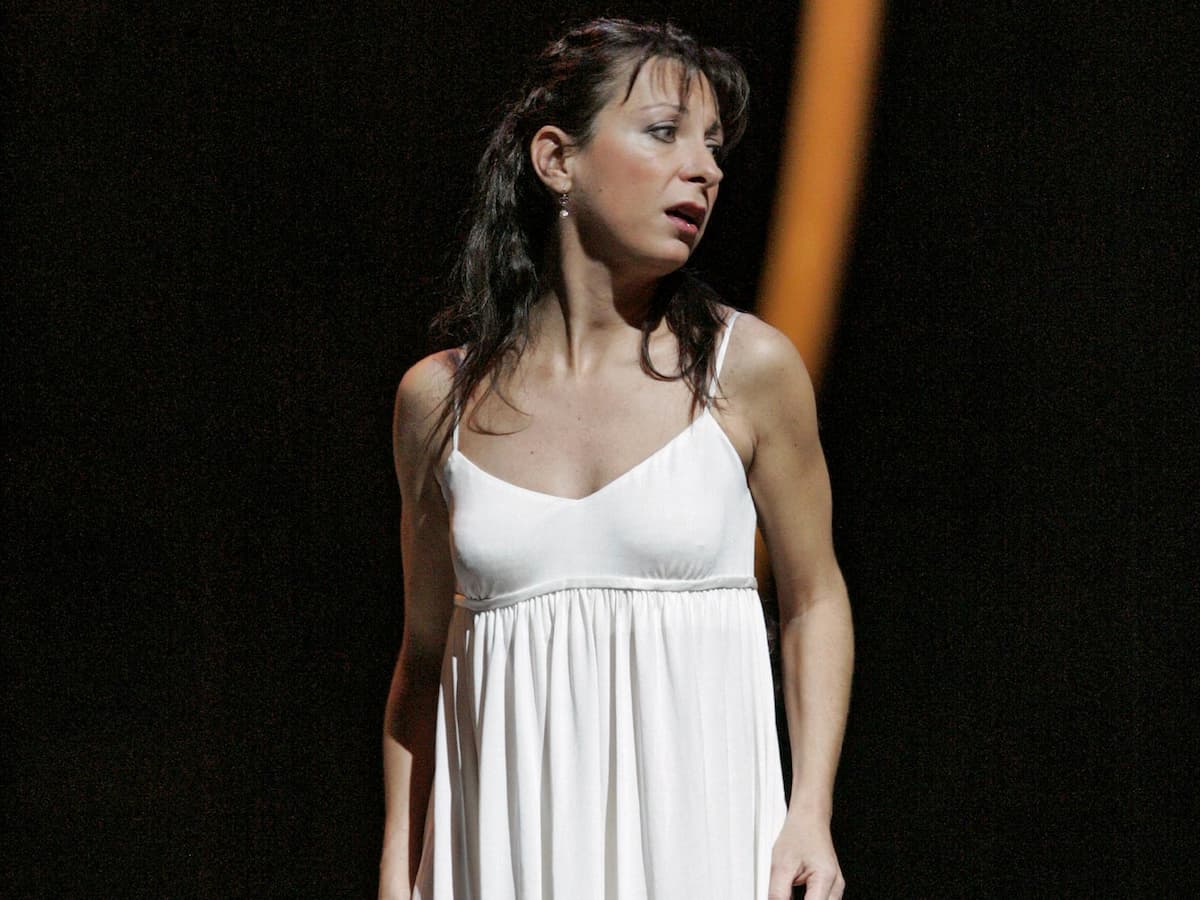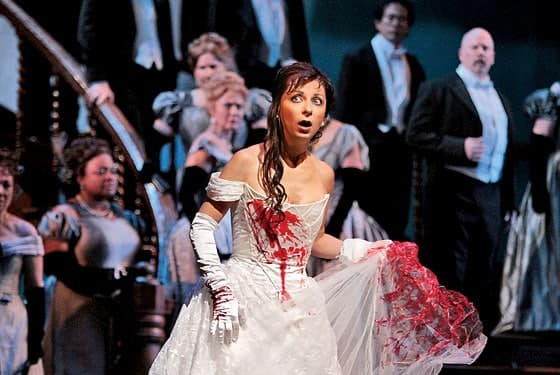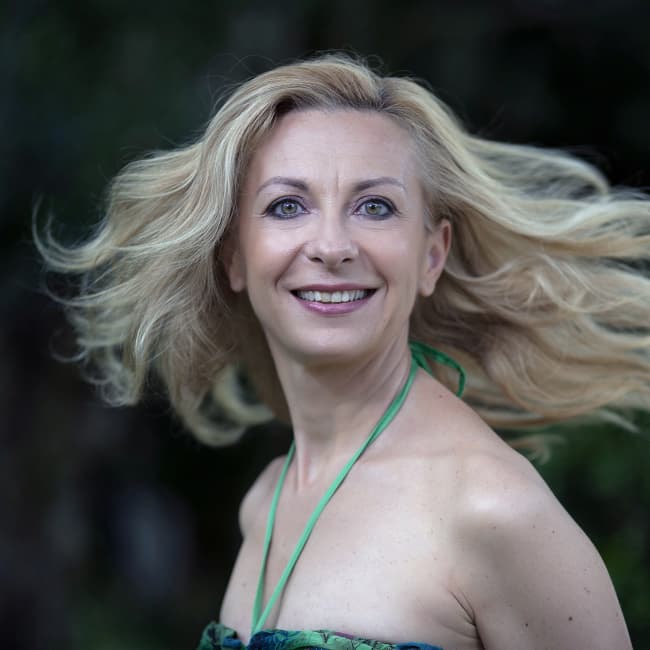French soprano Natalie Dessay is known for her unusual commitment to exploring the theatrical possibilities offered by opera. An admired interpreter of bel canto and lyric heroines, Dessay initially made her name with coloratura showpieces. For many years, she has been called the first French coloratura soprano to have made an international career, and some commentators “have hailed her appearance as part of a renewal of the often lamented lost French vocal style.”
Natalie Dessay Sings Offenbach’s The Tales of Hoffmann, “Les oiseaux dans la charmille”
Childhood and Early Interests

Natalie Dessay
Natalie Dessay was born Nathalie Dessaix on 19 April 1965 in Lyon, but she grew up in Bordeaux. Her father was an engineer and her mother a homemaker, with both parents not particularly interested in music. Dessay remembers “I sang for myself under the shower, and I did know that I could sing in tune, that is all.” However, she did want to become a performer and dreamt of becoming a ballet dancer or joining the circus. “Probably I wanted to be heard, as my mother kept telling me when I was a child: ‘Stop with your piercing voice—la voix perçante!”
Dessay studied ballet but eventually realised that she would never become a professional. “I just didn’t have flexibility,” she explained in an interview, “It was the first great disappointment of my life.” She went to study German in college but found it rather dull. In her second year she switched to acting classes without the permission of her parents. “They were not happy, but there was nothing they could do.”
Natalie Dessay Sings Strauss’ Ariadne auf Naxos, “Großmächtige Prinzessin”
Discovery

Natalie Dessay as Juliette
Dessay had not really been exposed to opera. Her parents did own a few recordings of Callas, Caballé, and Te Kanawa, and during an outing to a local opera theatre, she proudly slept through a production of “Tristan and Isolde.” During her acting studies, Dessay was required to attend a theatre workshop, and during rehearsals for a play by Molière, she decided to take a few voice lessons because her part called for her to sing a short passage.
That short passage was an excerpt from Pamina’s aria from “The Magic Flute,” and her voice teacher urged her to become a singer. “You have to sing,” her teacher told her, “you have such an easy voice.” Soon, Dessay left the theatre behind and started vocal studies at the Bordeaux Conservatory. As she explained in an interview, “when you are gifted for something, you want to improve, and it gives you courage to work hard, and that is what I was waiting for.”
Natalie Dessay Sings Mozart’s The Magic Flute, “Der Hölle Rache”
Opera Training

Natalie Dessay as Lucia, 2011, Metropolitan Opera
It became clear that Dessay had a high and flexible but small voice. Her teacher told her, “you don’t sing like an opera singer, you sing like a pop singer.” Dessay was never interested in a pop career, and she considered her natural voice not interesting at all. “Opera training,” according to Dessay, “was boring and arduous. You are learning how to produce the most beautiful sound with what you have in your throat, and because you can’t control anything directly, your teacher has to explain through funny metaphors.”
Dessay progressed rapidly, and she graduated after only a single year of training. As she remembered, “I knew that the things I had to learn were not possible to learn in school. I didn’t feel well in institutions; that was not for me. I wanted to experiment, to learn what it is to play and sing at the same time.”
Natalie Dessay Sings Donizetti’s La Fille du Régiment, “Au bruit de la guerre”
First Engagements

© Bernard Martinez
Dessay auditioned for the opera company in Toulouse but did not have high expectations. However, “right after the audition, someone ran up to me and said, just stay here.” She was asked to join the chorus and was very happy to be part of an opera company. However, “I quickly realized it was not enough, and I wanted to be a soloist.” Dessay started singing with provincial opera companies and, in 1989, entered France’s first Concours des Voix Nouvelles and immediately won second prize. She moved to Paris for further training and continued to win several prestigious voice competitions, including the 1990 Mozart Competition in Vienna.
Dessay is known for her physical approach to vocal performances. “I’m into the character and not just the beautiful singing,” she said. “For me, the music is not the goal. The goal is theatre.” She also confessed that she never felt completely comfortable in opera, as she feels that the art form is one of the past. “I always feel like a foreigner, in fact, but I love doing the job without ever losing consciousness that it was an art of the past.” And although she believes that some modern operas by Thomas Adès or John Adams will be part of the repertoire, “opera is an art which has not been able to renew itself.”
For more of the best in classical music, sign up for our E-Newsletter
